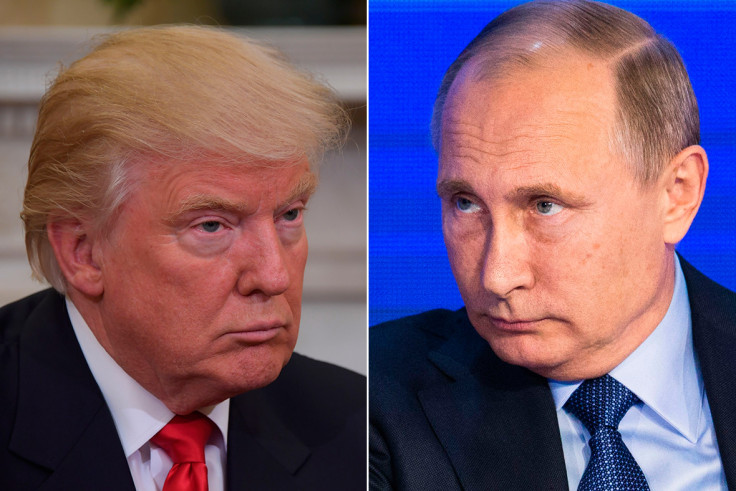Early Trump meeting with Putin a 'mistake' say Russia experts
President-elect must meet with Nato allies first or risk being 'outmanoeuvred' by Putin

President-elect Donald Trump risks being 'outmanoeuvred' and wasting America's advantage if he pursues early negotiations with Russian President Vladimir Putin, foreign-policy experts have warned.
"I think that it would be a mistake for him to hop in and start negotiating because I think he'll be outmanoeuvred," said Dr Jacob Parakilas, deputy head of the US Programme at the international affairs think tank Chatham House.
Parakilas believes that Trump has misjudged that his business negotiating skills can easily translate to international diplomacy.
"I don't think that Trump appreciates the complexity of international diplomatic and strategic negotiations," Parakilas said. "[Trump] assumes that because he has successfully negotiated business deals that he will be able to apply that directly to negotiations with Putin."
Parakilas has published a paper on the Trump administration's foreign policy toward Russia, arguing that "Russia will be one of the major geopolitical challenges" for President Trump.
Last weekend in mid-January, a story in the The Sunday Times reported members of Trump's team told British officials that the new president's first foreign trip would be to meet with Putin in Iceland. Both Trump and Putin's spokespeople have said that meeting isn't happening. But the two leaders have both said independently that they're looking to meet soon after Trump's inauguration on Friday (20 January 2017).
Trump recently said that he intends to lift sanctions imposed on Russia in 2014 after it violently annexed the Crimean region of Ukraine in exchange for cuts to its nuclear weapons stockpile.
But that strategy is "giving away a huge concession" to Russia, Parakilas said, noting that in the past, the US and Russia negotiated a strong arms control agreement "without the US giving a sweetener to Russia to get them to the table". The US has much more leverage than Russia, he added. "I think that's probably a message that Nato allies would be keen to deliver to [Trump] personally if he meets with them before he meets with Putin."
Yet in an interview published this week (15 January), Trump called the Cold War Nato military alliance — originally forged by the US and European nations to guard against the former Soviet Union — obsolete. The message has worried European leaders and America's Nato allies about the alliance's stability. Trump's words undermine "the deterrent value of Nato, even without the US formally withdrawing from the treaty," Parakilas said.
At a meeting in London in December 2016, former US National Security Council member and Russian specialist at Kissinger Associates, Thomas Graham, echoed Parakilas' concerns about an early Trump-Putin meeting.
"I would be concerned about Trump having an early meeting," Graham said. There is a "tremendous need for the president-elect to be educated", he pointed out, saying that the best time for a meeting would be in the autumn of 2017.
"If the goal was to deal with Russia from a position of strength," Graham said, "it's with the support of our European partners."
© Copyright IBTimes 2025. All rights reserved.






















